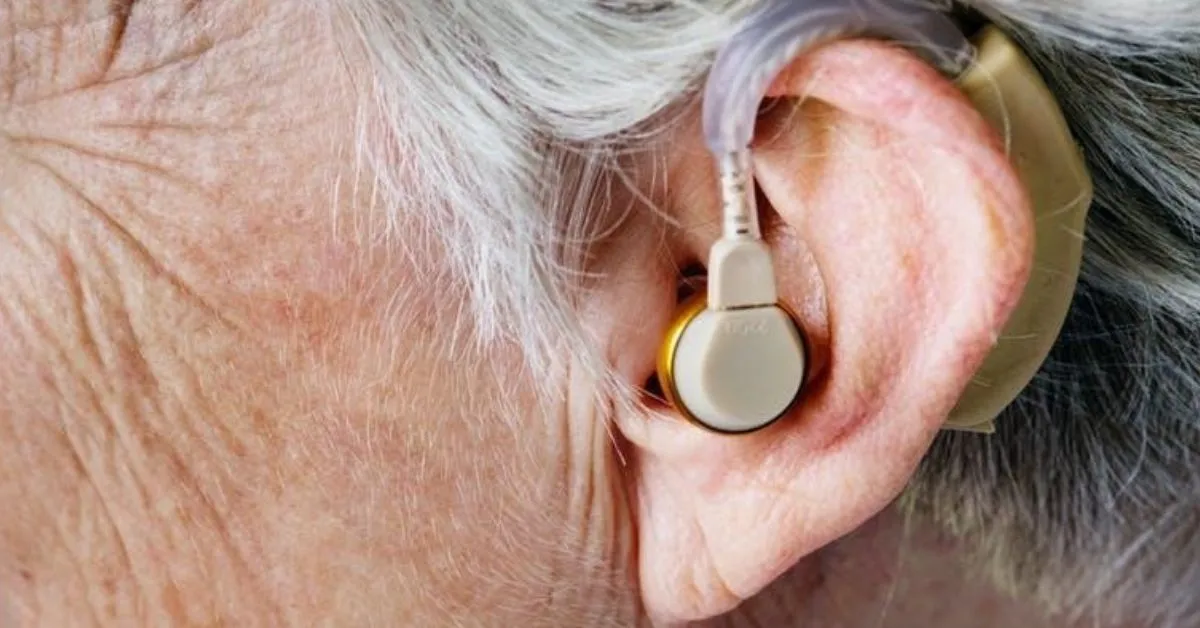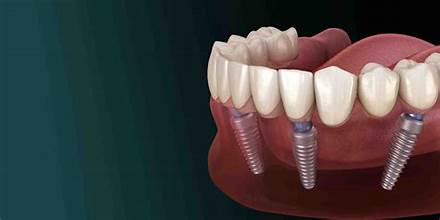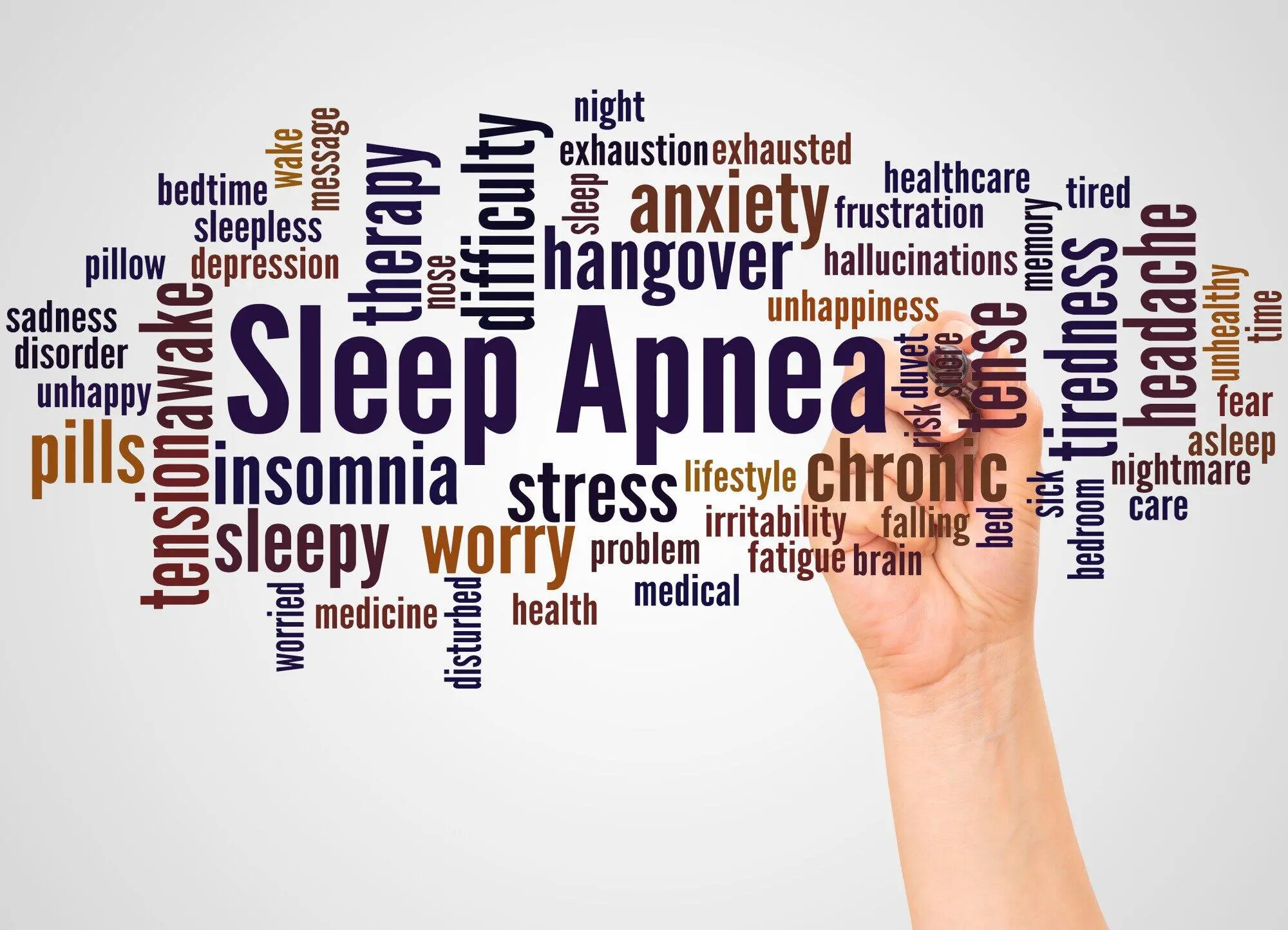HEALTH
Proper Hearing Aid Cleaning: Essential Tips for Longevity

Cleaning your hearing aids regularly is crucial for maintaining their performance and extending their lifespan. Proper hearing aid cleaning ensures that your devices function well, providing you with clear and consistent sound.
A few simple steps can make a big difference, helping to prevent common issues like feedback and reduced effectiveness. In this guide, we’ll cover essential tips for keeping your hearing aids in top shape.
Why Cleaning Your Hearing Aids Is Important
Cleaning your hearing aids is important because it helps them work better and last longer. When you clean them, you can hear more clearly and avoid problems. Here’s why cleaning is so important.
Improves Performance
Regularly cleaning your hearing devices improves their performance by removing any dirt, earwax, or moisture that may build up and block important parts. This ensures that sound can pass through clearly, so you can hear better.
When your hearing devices are clean, they can pick up sounds more accurately and give you a clearer listening experience. By taking a little time to clean your hearing devices every day, you can keep them working well and enjoy better hearing.
Extends Lifespan
Keeping your hearing aids clean can help them last longer. When you remove dirt and earwax, your hearing aids do not have to work as hard, which means they can last for many years. Regular cleaning also prevents parts from getting damaged, which saves you money on repairs or replacements.
Using hearing aid accessories like cleaning brushes or air blowers can make the job easier and more effective. By taking good care of your hearing aids, you ensure they stay in good shape for a long time, giving you better value for your money.
Prevents Infections
Cleaning your hearing aids helps to prevent infections in your ears. Dirt, earwax, and moisture can build up on your hearing aids and bacteria can grow on them. This can lead to ear infections, which can be painful and make it harder to hear.
By cleaning your hearing aids regularly, you remove these harmful elements and keep your ears healthy. If you need more information check out Hearing At Home LLC, a reliable hearing aids business that offers useful advice and quality products.
Daily Cleaning Routine
Taking care of your hearing aids every day is easy and it helps them work better. You don’t need much time to do it. Just a few simple steps can make a big difference. Here’s how.
Gather Your Supplies
To clean your hearing aids, you will need a few basic tools. First, get a soft, dry cloth that you can use to wipe the hearing aids. You will also need a small brush, which helps to remove any earwax or dirt that may be stuck in the small parts of your devices.
Some hearing aids come with a special cleaning tool, so check if you have one. Lastly, have a small air blower on hand to gently blow away any particles from tight spaces. These simple supplies will help you keep your hearing aids clean and working well.
Remove Debris
Start by using the small brush to gently clean any earwax or dirt off your hearing aids. Pay close attention to the openings where sound comes out and where the aids rest in your ears.
Brush these parts carefully to ensure they are clear of any blockages. Then, use the air blower to blow away any leftover tiny particles. This will help keep your hearing aids free from debris and working well.
Wipe Down
Once you have removed the debris, take your soft, dry cloth and gently wipe down your hearing aids. Make sure to clean all the surfaces but be gentle to avoid damaging any parts.
Be thorough in your wiping to ensure that any leftover moisture, dirt, or earwax is removed. This step helps to keep your hearing aids clean and ready for use each day. It also helps to keep them working well for a long time.
Weekly Deep Cleaning
Deep cleaning your hearing aids on a weekly basis is important to ensure they stay in good condition and perform optimally. Taking the time to give them a thorough clean can remove any buildup that daily cleaning might have missed. Here’s how.
Inspect the Earmold
To keep your hearing aids working well, it’s important to check the earmolds every week. Start by looking closely at the earmolds. Look for any dirt, wax, or cracks. If you see any wax or dirt, clean it gently with your small brush or a soft cloth.
If you notice any cracks or damage, it might be time to get the earmolds fixed or replaced. Keeping the earmolds clean and in good shape helps you hear better and makes your hearing aids last longer.
Use a Hearing Aid Dryer
Using a hearing aid dryer helps keep your hearing aids dry and free from moisture. Moisture can come from sweat or being outside in wet weather. A dryer works by gently warming your hearing aids to remove any moisture.
This keeps them working well and stops them from breaking. To use a dryer, place your hearing aids inside and turn it on. Leave them in the dryer for the time it says in the instructions.
Monthly Maintenance
In addition to daily and weekly cleaning, conducting a more comprehensive maintenance check once a month ensures your hearing aids remain in optimal condition. This extra step can help identify potential issues early and keep your devices functioning smoothly.
Replace Wax Guards
Wax guards play a crucial role in preventing earwax from entering the hearing aids and affecting sound quality. Over time, these guards can get clogged and require replacement. Check your hearing aid manual for instructions on how to replace the wax guards, as procedures may vary depending on the model.
Learn All About Hearing Aid Cleaning
Keeping your hearing aids clean is not hard and makes them work better. Just take a little time each day, week, and month to clean and check them. This will help you hear well and keep your aids working for a long time.
Simple steps about hearing aid cleaning like brushing off dirt, wiping them down, and looking for damage are all it takes. With regular care, your hearing aids will stay in good shape and keep giving you clear sound.
Did you find this article helpful? Check out the rest of our blog.
Was this article valuable to you? If so, make sure to explore our blog for additional useful information and resources.
HEALTH
Dental Implantology Will Always Involve Some Post-Surgery Pain

Are you considering getting dental implants? You’re not alone! Dental implantology is all the rage in dentistry right now, offering a reliable solution for those looking to replace missing teeth. But before you dive into this transformative treatment, there are some truths about post-surgery pain that you should know. Let’s uncover the honest facts about what to expect after undergoing dental implant surgery and how to manage any discomfort effectively.
Dental Implants Are Big in Dentistry Right Now
Dental implants have revolutionized the field of dentistry, offering a permanent and natural-looking solution for missing teeth. This innovative treatment has gained immense popularity in recent years due to its high success rates and long-term benefits.
Unlike traditional bridges or dentures, dental implants provide a stable foundation that mimics the structure of natural teeth. This not only enhances aesthetics but also improves functionality, allowing patients to eat, speak, and smile with confidence. But they do come with some risks – ongoing pain being one of them.
With advancements in technology and techniques, dental implant procedures have become more efficient and comfortable for patients. Accuracy is also vital – don’t end up with a messy operator – the more precise the implanting the better and the less chance of an unfavourable outcome. Yes, dentists can now customize treatment plans to suit individual mouth shapes, ensuring optimal outcomes for each case.
If you’re considering dental implants as a tooth replacement option, consult with your dentist to explore how this cutting-edge solution can transform your smile and overall oral health. An don’t be afraid to come across as a perfectionist – it may be the vibe that gets the very best performance out of your surgery.
All On 4 Are a Comprehensive Replacement Treatment
All On 4 dental implants have revolutionized the world of tooth replacement. This treatment involves securing a full set of new teeth on just four implants per arch. Unlike traditional dentures, All On 4 provides a permanent solution that looks and feels like natural teeth.
With All On 4, patients can enjoy restored confidence in their smile and enhanced chewing ability. The innovative design allows for a comprehensive restoration without the need for individual implants for each missing tooth. According to this dentist who does All On Fours in Lincoln Park, the surgery is usually completed in one day, reducing recovery time.
This advanced technique not only saves time but also reduces costs compared to traditional implant procedures. By strategically placing the implants at specific angles, All On 4 offers stability and support for the entire prosthesis.
All On 4 is an excellent option for those seeking a long-term tooth replacement solution that mimics the function and aesthetics of natural teeth seamlessly.
Yet it’s no secret that dental implant surgery including All On 4 can lead to post-operative pain. Many patients wonder, though, if dentists are always upfront about the discomfort they may experience after the procedure. The truth is, reputable dentists will typically discuss potential post-surgery pain with their patients before moving forward with any treatment.
Are Dentists Ever Honest About Post-Surgery Pain?
Being transparent about what to expect in terms of pain management is crucial for building trust and ensuring patient satisfaction. While some may downplay the discomfort involved in dental implantology, most dentists prioritize honesty and open communication when it comes to discussing post-operative pain.
By setting realistic expectations and providing detailed information on how to manage pain effectively following surgery, dentists can help alleviate concerns and ensure a smoother recovery process for their patients. Remember, it’s always important to have an open dialogue with your dentist about any worries or uncertainties you may have regarding post-surgery pain.
Dental Implantology Is Major Mouth Trauma
Implantology is not for the faint-hearted. It involves major mouth trauma as the dentist must surgically place metal posts into your jawbone to support artificial teeth. This process can cause discomfort and swelling, leading to post-surgery pain that varies from person to person.
The procedure itself may sound intimidating, but it’s essential for those looking to restore their smile and improve oral health. The good news is that advancements in technology have made dental implants more efficient and less invasive than ever before.
While the thought of undergoing such a procedure may be daunting, many patients find that the long-term benefits outweigh any temporary discomfort. Proper pain management techniques can help minimize post-surgery pain, allowing you to recover comfortably and enjoy your new smile sooner rather than later.
Severe Pain May Herald a Dental Emergency
While some post-surgery pain is expected after getting dental implants, severe and persistent pain should never be ignored. If you experience intense discomfort that doesn’t improve with prescribed medication or if you notice any signs of infection such as swelling, fever, or excessive bleeding, If you believe your severe pain may need an urgent solution then it’s crucial to seek immediate help from your dentist, or even go straight to hospital..
Being proactive about addressing severe pain can prevent potential complications and ensure the long-term success of your dental implant procedure. Remember, a trustworthy dentist will always prioritize your well-being and provide honest guidance throughout – and also after – your treatment journey.
Stay informed, stay vigilant, and remember that managing post-surgery pain is an essential part of the dental implant process. Trust in the expertise of your dental care provider to guide you through any challenges you may face along the way, but also trust your own panic button (instincts).
HEALTH
Sleep Soundly: The Ultimate Guide to the Best Oral Appliance for Sleep Apnea

Imagine waking up feeling refreshed, energized, and ready to tackle the day ahead. Sleep apnea no longer has to dictate the quality of your sleep or your life.
With the right dental appliances, you can say goodbye to sleepless nights and hello to peaceful slumber. But with so many options on the market, how do you know which one is right for you?
Don’t worry, we’re here to help! In this guide, we’ll take a deep dive into the best oral appliance for sleep apnea to help you make an informed decision.
Ready for a sound sleep that rejuvenates your body and mind? Let’s dive in!
Mandibular Advancement Devices
MADs are the most commonly recommended oral appliance for sleep apnea. They work by gently shifting your lower jaw forward, which helps to keep your airway open while you sleep.
This prevents the collapse of soft tissue at the back of your throat that causes snoring and obstructive sleep apnea. MADs are easy to use, customizable, and often more effective than other types of oral appliances.
Tongue Retaining Devices
For those who prefer not to have anything in their mouth while sleeping, TRDs are a great alternative. They work by holding the tongue in place to prevent it from falling back and blocking the airway.
They are also more compact and portable than MADs, making them a great option for travel. However, they can be a bit uncomfortable at first and not be as effective for more severe cases of sleep apnea.
Continuous Positive Airway Pressure Masks
CPAP masks are often the first line of treatment for sleep apnea. They work by delivering a continuous stream of air through a mask, keeping your airway open while you sleep.
While effective, CPAP masks can be bulky and uncomfortable, making it difficult for some people to adjust to wearing them every night. Additionally, they may not be a viable option for those who frequently travel.
Adjustable Airway Pressure Devices
Similar to CPAP masks, adjustable airway pressure devices deliver a constant stream of air, but with the added ability to adjust the air pressure. This can be beneficial for those who have trouble tolerating high pressures and experience discomfort or dry mouth.
Plus, they are more compact than CPAP masks, making them easier to travel with. However, they may not be as effective as other options for those with serious cases of sleep apnea.
Custom-Fitted Dental Mouthpieces
These are the most expensive and time-consuming options, but also the most effective for acute cases. A dentist will take impressions of your teeth and create a customized mouthpiece that holds your jaw in a forward position while you sleep.
This helps to keep your airway open without the need for bulky equipment or uncomfortable straps. However, it may not be covered by insurance and requires regular check-ups for adjustments.
Those seeking personalized treatment might explore solutions like this oral appliance therapy in Pasadena, CA. They offer customized devices designed to fit your needs and improve the quality of your sleep.
Exploring the Best Oral Appliance for Sleep Apnea
Choosing the best oral appliance for sleep apnea is a significant step towards better sleep and improved health. Remember, the right device is the one that you feel comfortable using every night.
Consult with a sleep specialist or a dentist experienced in this treatment to find your ideal match. Ready to reclaim your night’s rest and transform your days? Explore your options today and wake up to a brighter, more vibrant tomorrow.
Did you find this article helpful? Check out the rest of our blog now for more!
HEALTH
The Importance of Personalized Treatment Plans in Intensive Inpatient Therapy

Have you or a loved one ever needed help that felt truly tailored just for you?
In the world of mental health, one size hardly fits all, which is why the concept of personalized treatment plans in intensive inpatient therapy is changing lives. Imagine a plan that understands your unique struggles, strengths, and goals.
This article dives into why personalized plans are not just beneficial but essential in intensive inpatient therapy, offering a beacon of hope for those seeking a path to recovery.
Tailored Approach
A tailored approach in therapy means the treatment is made just for you. It looks at what you need and what your goals are. This way, you get help that truly fits what you’re going through.
When therapy fits your needs, you might feel better faster. It’s because every part of your treatment is chosen to help you the most.
Holistic Care
Holistic care entails considering a person’s health from all angles, not just one. It includes the health of your mind, body, and emotions. This method helps make sure that all the things that might affect a person’s healing are thought about.
When someone is in intensive hospital therapy, holistic care can include a lot of different types of intense treatment. This could be going to talk therapy, working out, or learning new ways to calm down. These all help the person get better as a whole.
Increased Engagement
When therapy is personalized, patients are more likely to get involved in their treatment plans. They feel that their views and preferences are heard and valued. This leads to a stronger commitment to attending sessions and following through with the treatment plan.
Increased engagement means patients play an active role in their recovery process. They work closely with their therapists to set goals and achieve them, making progress more visible and meaningful.
Efficient Resource Allocation
Efficient resource allocation ensures that the treatment resources are used in the best way possible. This approach aims to maximize the benefits to the patient while minimizing waste. It means every aspect of the therapy, from the time spent with therapists to the use of therapy tools, is optimized for effectiveness.
This method helps both the therapy providers and the patients. Providers can offer high-quality care without unnecessary expenditures, and patients receive focused treatment that is more likely to lead to successful outcomes. If individuals require continued support after intensive inpatient therapy, read this guide to IOP (Intensive Outpatient Program) for seamless transition and ongoing care.
Flexibility and Adaptability
Personalized intense therapy depends on being able to change and adapt. With this method, the treatment plan can be changed as the patient’s needs change over time. It makes sure that the therapy stays useful and helpful while the person is recovering.
This ability to change is very important for dealing with problems or changes in a patient’s state that come out of the blue. It lets doctors change their methods to best help the patient’s growth, making sure that they keep making progress toward their recovery goals.
Intensive Inpatient Therapy Leads the Way.
In conclusion, intensive inpatient therapy stands out as a powerful tool for healing and growth. This approach provides personalized, holistic care that can meet each person right where they are in their mental health journey.
With a focus on fitting the therapy to the person, not the other way around, it opens the door to a brighter, healthier future for those who take part.
If you gained new insights from this article, be sure to explore our blog for more enlightening content.

 TECHNOLOGY4 months ago
TECHNOLOGY4 months agoBlog Arcy Art: Where Architecture Meets Art

 ENTERTAINMENT1 week ago
ENTERTAINMENT1 week agoExploring the Kristen Archives: A Treasure Trove of Erotica and More

 ENTERTAINMENT4 days ago
ENTERTAINMENT4 days agoKiss KH: The Streaming Platform Redefining Digital Engagement and Cultural Currents

 LIFESTYLE1 week ago
LIFESTYLE1 week agoWho Is Sandra Orlow?

 LIFESTYLE4 months ago
LIFESTYLE4 months agoThe Disciplinary Wives Club: Spanking for Love, Not Punishment

 GENERAL4 months ago
GENERAL4 months agoWhat are stories of male chastity? A Comprehensive Guide

 EDUCATION4 days ago
EDUCATION4 days agoLingrohub Platform: A Complete Student Access Guide

 ENTERTAINMENT4 weeks ago
ENTERTAINMENT4 weeks agoMonkeyGG2: Your Personal Gaming Hub












